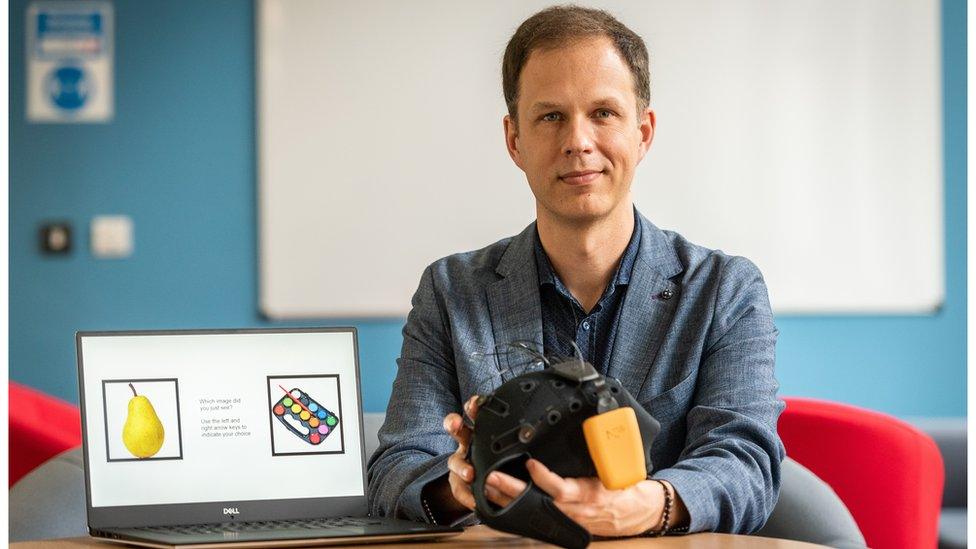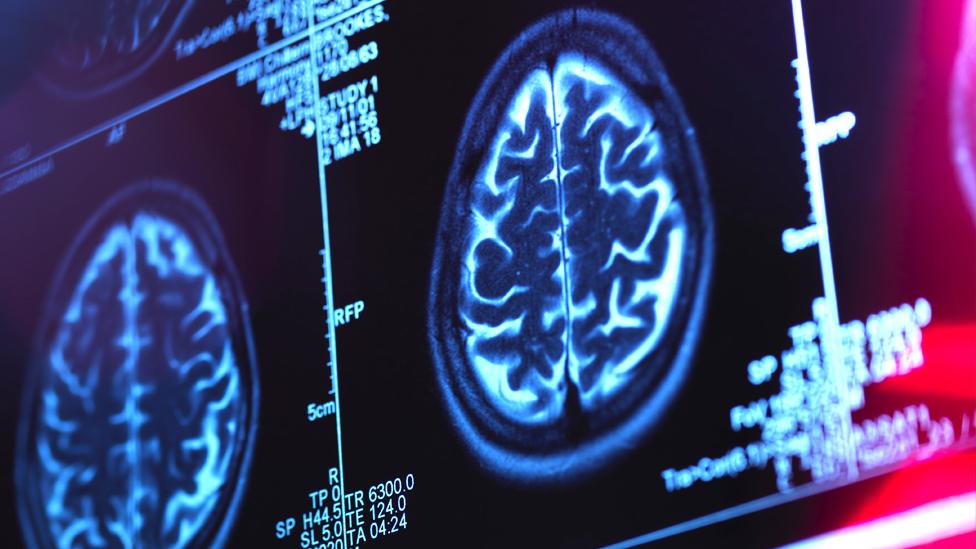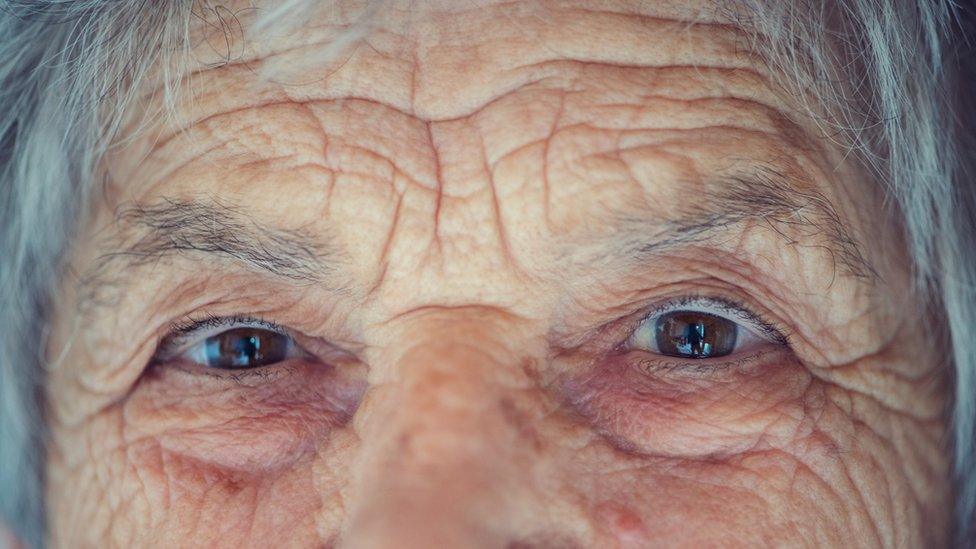University of Bath scientist wins funding for new Alzheimer's test
- Published

Dr George Stothart's test involves measuring brain waves given out when someone recognises an image
A neuroscientist has been given £92,747 to develop a test for Alzheimer's disease and dementia at the University of Bath.
Dr George Stothart's technique, called Fastball EEG, involves measuring brain waves while flashing images on a computer screen for two minutes.
When a person remembers an image they have already seen during the test, it registers in the data.
The funding has come from Bristol-based charity BRACE Dementia Research.
The theory was tested in a study in the journal BRAIN , externalin September 2021. It found Fastball to be highly effective at picking up the brain waves emitted when a person recognised an image.
The types of dementia being studied by Dr Stothart include frontotemporal dementia, dementia with Lewy bodies and vascular dementia.
Together these account for more than 250,000 dementia cases in the UK.
'Astonishing impact'
Dr Stothart said: "This award will be instrumental in further developing Fastball to help diagnose all forms of dementia, not just Alzheimer's disease.
"BRACE's support has been invaluable to the development of Fastball and we are excited to begin this new avenue of cutting edge research."
Mark Poarch, chief executive at BRACE said: "We were delighted to be able to fund Dr Stothart's first Fastball project, which has had an astonishing impact.
"It could result in a new diagnostic tool that transforms the prospects of vast numbers of people who are developing Alzheimer's disease."

Follow BBC West on Facebook, external, Twitter, external and Instagram, external. Send your story ideas to: bristol@bbc.co.uk
Related topics
- Published28 September 2022

- Published30 September 2022
